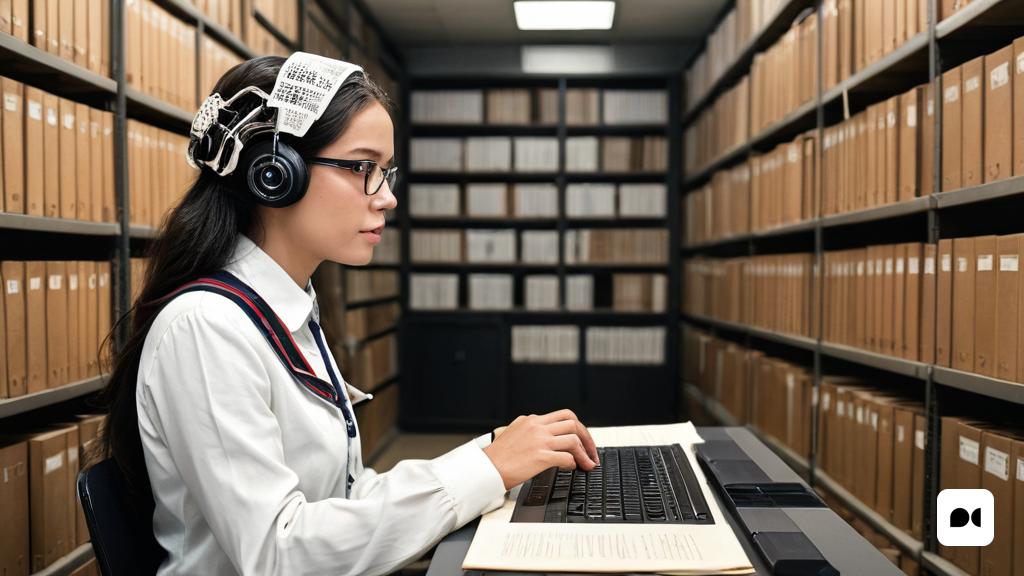The Power of Artificial Intelligence in File Management
In the era of accelerated digitization, municipal archives are adopting artificial intelligence (AI) as an invaluable ally to transform their operations and preserve the documentary heritage of communities.
AI is revolutionizing municipal archive management, optimizing efficiency and improving the accessibility of historical and cultural information. From consulting documents to organizing exhibitions and educational events, AI is driving a new service paradigm.
Task Automation and Efficiency Improvement
AI-powered chatbots automate common queries, schedule visits and manage document requests, freeing staff from repetitive tasks and allowing them to focus on more complex and enriching activities.
Additionally, AI optimizes the creation and maintenance of digital records. Advanced systems automatically catalog documents, scan and transcribe ancient texts, and organize information so that it is easily accessible to researchers and the general public.
Predictive Analysis for Proactive Conservation
Predictive analytics is another area where AI is making a significant difference. Intelligent systems analyze usage patterns and demand to anticipate future preservation and digitization needs, ensuring that resources are allocated effectively and that the most frequently consulted documents are always available.
AI is also transforming the way documentary heritage is interacted with. Algorithms can identify documents relevant to specific researchers, facilitate the search for information, and enable discoveries that might otherwise go unnoticed.
Inspiring Examples of Innovation in Municipal Archives
In cities like Barcelona, smart lighting systems not only illuminate the streets, but also improve the management and security of the spaces where archives are stored, guaranteeing the preservation of important documents under optimal light and temperature conditions.
In a broader context, cities across Europe are implementing similar systems to modernize their municipal archives and libraries, using AI to improve access and management of the vast documentary heritage they hold.
AI as Guardian of Collective Memory
The digitization of municipal archives is not limited to the conversion of physical documents to digital formats. AI plays a fundamental role in preserving and enriching this documentary heritage, ensuring its accessibility and usefulness for future generations.
Discovering Hidden Stories and Connections
AI systems can automatically identify and classify historical documents, even those written in ancient languages or with difficult-to-decipher handwriting. This allows the creation of accurate and complete digital catalogs, facilitating the search and retrieval of information for researchers and citizens.
AI not only facilitates access to information, but also helps uncover new stories and perspectives within the vast documentary heritage. By analyzing patterns and relationships between documents, AI can identify connections and events that might go unnoticed by the human eye. This allows for a better understanding of the past and opens new avenues of historical research.
Sharing Historical Knowledge in an Attractive Way
AI is also transforming the way historical knowledge is shared with new generations. Interactive tools and personalized educational experiences powered by AI can make learning about the past more engaging and meaningful for students of all ages.
Inspiring Examples: AI in Action in Municipal Archives
In the digital age, artificial intelligence (AI) is not only transforming municipal archive management, but is also opening up new possibilities for research, education and access to information.
Cities around the world are implementing innovative AI-based solutions to modernize their archives, preserve their documentary heritage and make it more accessible to their citizens.
Amsterdam (Netherlands): Global Access to Documentary Heritage
The Amsterdam Municipal Archive has used AI to digitize and catalog millions of historical documents, creating an online platform that allows citizens to access and explore their documentary heritage from anywhere in the world.
Helsinki (Finland): Revealing the Visual Context
The National Library of Finland has developed an AI system that can automatically identify images and objects in historical documents, allowing for a better understanding of the visual and cultural context of the time.
Paris (France): Automatic Transcription of Ancient Documents
France’s National Archives is using AI to automatically transcribe ancient handwritten documents, making information easier to access for researchers and the general public.
AI in municipal archive management is not only preserving collective memory, but is also opening new possibilities for research, education and access to information. In an increasingly digital world, AI becomes an indispensable tool to ensure that the documentary heritage of cities is accessible, useful and relevant for present and future generations.

